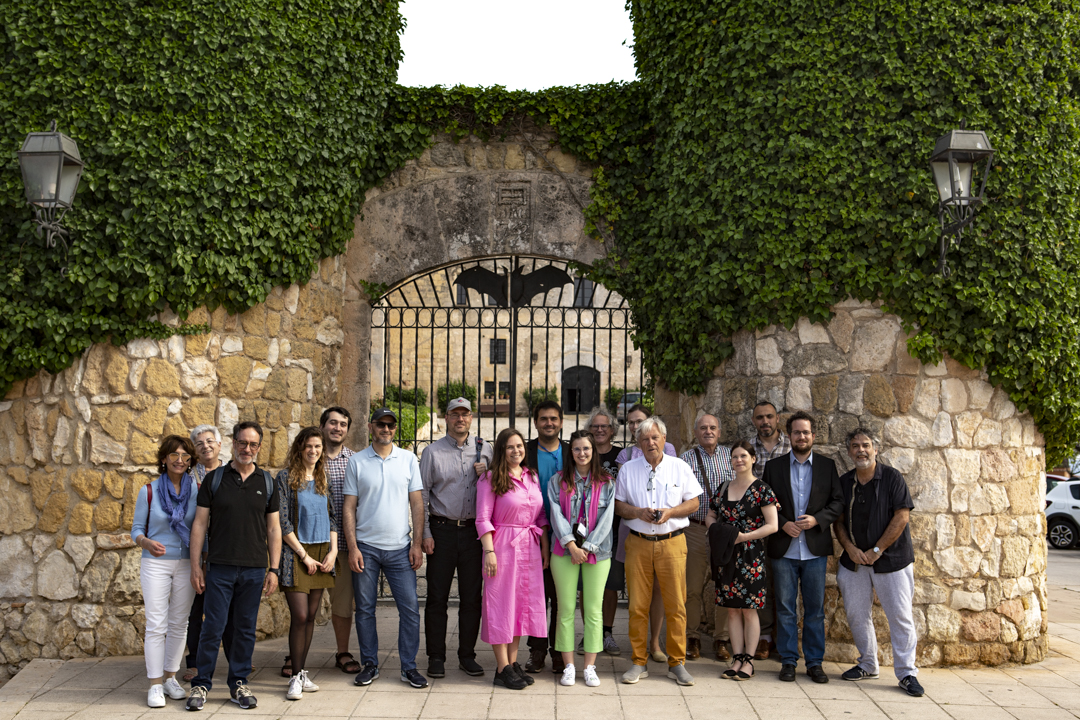
Social media and digitalisation as a great opportunity for small languages
08.06.2023Last week, FUEN celebrated a premiere: for the first time, the minority umbrella organisation hosted an event in Catalonia, Spain: The annual meeting of the Non-Kin-State Working Group (minorities without a mother state) took place from 31 May to 03 June 2023 in Altafulla, Catalonia, in the north-east of Spain. It was hosted by the Catalan organisation Plataforma per la Llengua, which works to promote and defend the Catalan language and the linguistic rights of Catalan-speaking communities.
FUEN Vice-President and Speaker of the Non-Kin-State WG Bahne Bahnsen and Plataforma President Òscar Escuder i de la Torre warmly welcomed the 18 participants from a total of ten countries and 14 minorities to the very special region in the north of Spain, which upholds its status as a "historical autonomous community" – like the Basque Country and Galicia. "Unfortunately, linguistic diversity in Spain is seen as a problem, not a wealth. This is also reflected in the constitution," said Òscar Escuder i de la Torre.
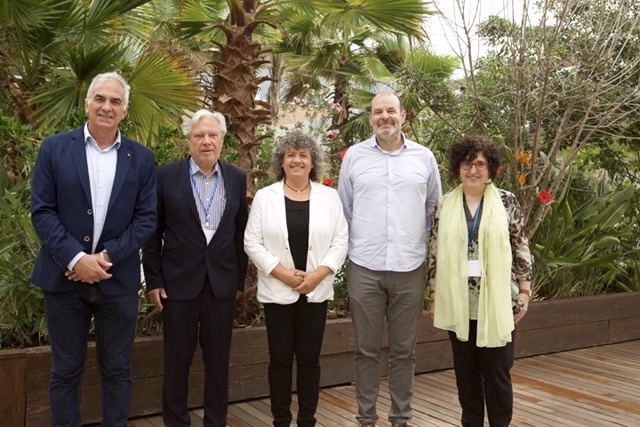
In the picture from left: Àngel Xifré Arroyo, Bahne Bahnsen, Montse Castellarnau Vicente, Òscar Escuder i de la Torre, Mireia Plana.
"It is my great hope that Catalan will become an official language like any other language," stressed Montse Castellarnau Vicente, mayor of Altafulla, during her opening speech. It is this tireless striving for official recognition, the use of the language in court, in the hospital, in dealings with authorities and the discrepancy between theory or official regulations and lived practice that runs like a thread through the working sessions of the conference, but also through the everyday life of many minorities without a kin-state.
"We in Catalonia have been fighting for our language rights in the digital world since the early days of the internet," stressed Àngel Xifré Arroyo, delegate of the Catalan government in Tarragona. For example, he said, the Ministry of Labour has supported IT solutions in Catalan so that companies that develop apps can do so in Catalan.
Because what distinguishes Catalan from most other regional languages is that the language is not that small. "There are more people who speak Catalan than, say, Finnish or Estonian," says Mireia Plana, a member of the Catalan School of Public Administration and vice-president of the Plataforma per la Llengua. However, it speakers have hardly any official linguistic rights – also due to a lack of clear criteria in EU language policy.
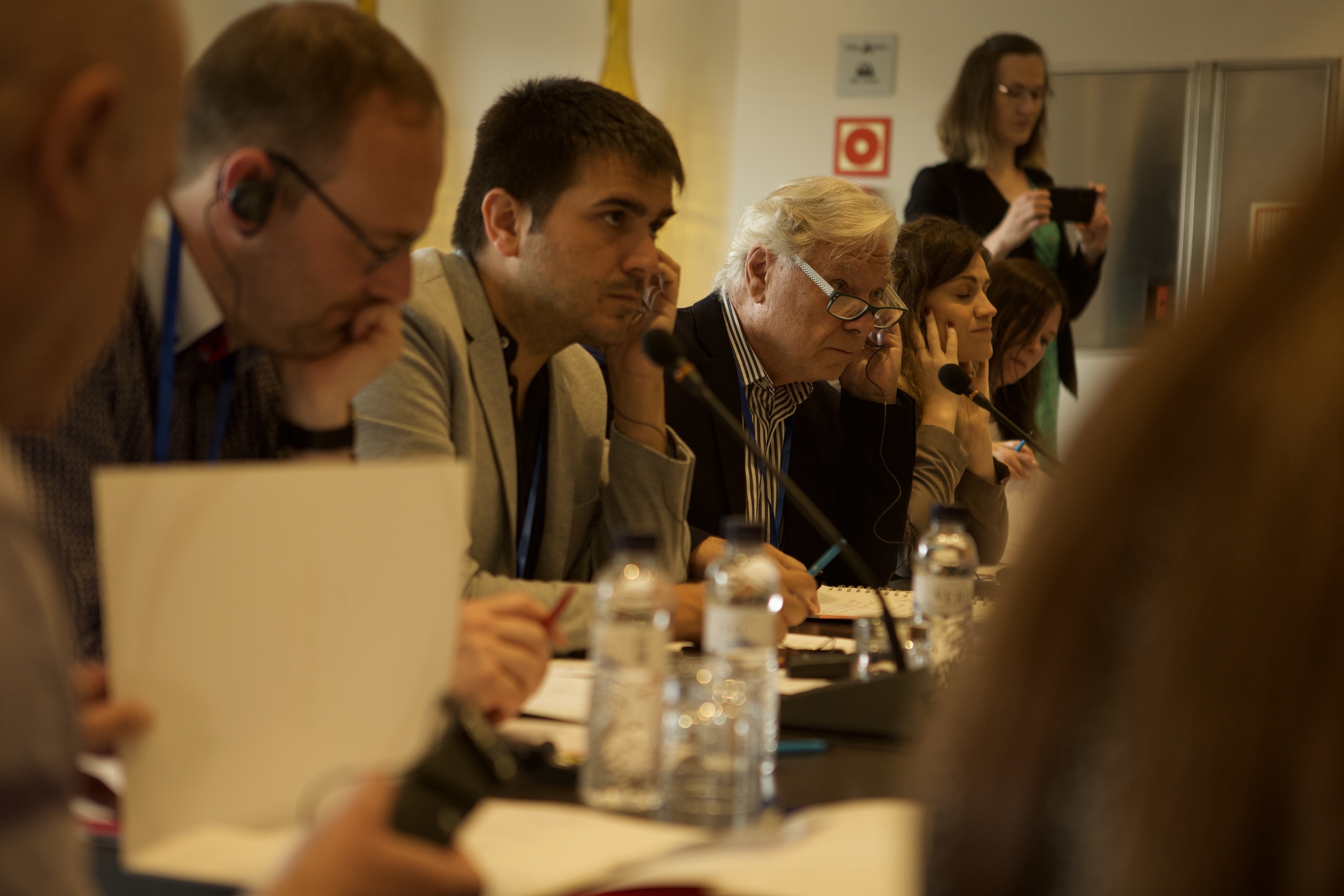
Minority language skills among public sector employees was the big topic of the first day of the conference. Meritxell Llorente, a civil servant who campaigns for the teaching of Catalan to public employees, shed light on the status quo, which leaves much to be desired in many places. In her opinion, it has no democratic quality "if Catalan is hardly spoken in courts, tax offices, customs and in the health sector". At this point, a representative of the Basques, Paul Bilbao Sarria, and the Asturian Alma Hidalgo also gave insights into their linguistic practice. Alma Hidalgo, who works as a moderator and runs her own YouTube channel in Asturian, gave a particularly impressive description of the situation of direct discrimination, but fortunately also of an increase in young speakers through measures such as language planning in primary schools and digital channels. "We need speakers, but these speakers also need spaces and tools," said Paul Bilbao Sarria.

A well-known face in Asturian media: Alma Hidalgo (left).
Another example of the possibilities of language revitalisation through digital channels was presented by Carlos Vieito, member of the board of "A Mesa pola Normalización Lingüística" from Galicia: Youtubeiras, a Galician Youtube channel by and for young people.
A trip to nearby Tarragona with a visit to the Roma community rounded off the first day's programme.
The working sessions on day 2 focused on the presence of minority languages in new technologies. What new possibilities do Instagram, streaming services & Co. create? Alex Hinojo, expert on minority languages in new technologies and member of the Institut Ramon Llull (Public Institute for the Promotion of the Catalan Language Outside the Catalan Language Area) gave interesting insights on this. "New media are an opportunity for minority languages. Thanks to technology, the costs to spread the language have become smaller." At the same time, he appealed to society to become active, to support initiatives, to make search queries in minority languages or to generate Wikipedia content in them. "We need to use these languages and feed the technologies with them."
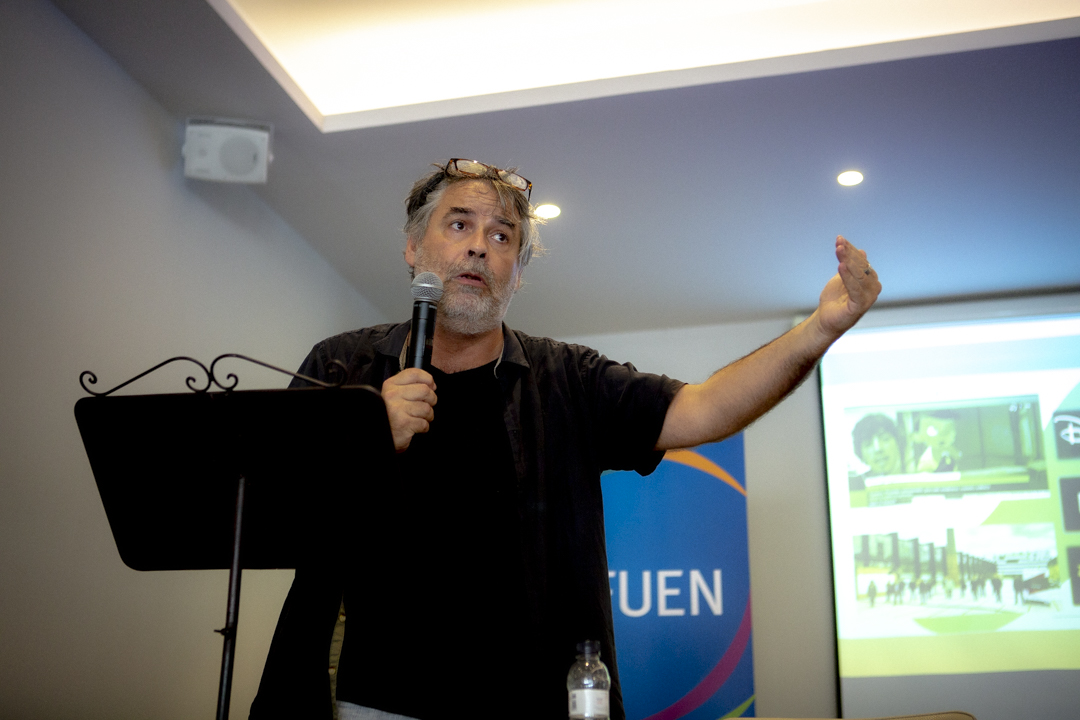
Paul Bilbao Sarria presented opportunities for minority languages in new media.
But there is a problem: the so-called "digital minoritisation", as the participants learned from the speakers Marina Massaguer and Montserrat Sendra, researchers in the field of sociolinguistics: Little content leads to limited language dissemination and consequently no new content, as demand is too low – a vicious circle. Thus, in the case of Catalonia, Spanish is often used to reach a larger audience. "The language battle is secondary for many influencers and consumers."
After the country reports of the conference participants as well as a planning session on future projects, the annual meeting closed with cultural insights: a city tour through Altafulla as well as a visit to a training group of the traditional "Castells" (human towers) were on the agenda.
"We had a strong and fruitful annual meeting in terms of content, which provided our working group with many ideas for the work in the minority communities on the ground," was the summary of Speaker of the Non-Kin-State WG, Bahne Bahnsen. "With representatives of the Aromanians from Bulgaria, Albania and Romania, the Ladins from Italy, the Pomaks from Greece, the Sorbs and Frisians from Germany, the Meskhetians from Russia and the Roma from Northern Macedonia, we had a diverse field of participants with a pleasing number of young faces."
The annual meeting of the FUEN Non-Kin-State Working Group was made possible by funding from the Federal Ministry of the Interior and Home Affairs of the Federal Republic of Germany.
Sincere thanks for the good cooperation go to the FUEN member organisation Plataforma per la Llengua.
Photos: Enric Virgili
You can find a picture gallery of the annual meeting here.
Background: The Non-Kin-State Working Group in FUEN
The Non-Kin-State Working Group was launched by FUEN in 2017 to give minorities without a mother-state the opportunity to discuss their specific concerns and challenges, find solutions and develop joint strategies for the preservation of their small languages and cultures. Currently, 29 organisations from 15 different countries belong to it.
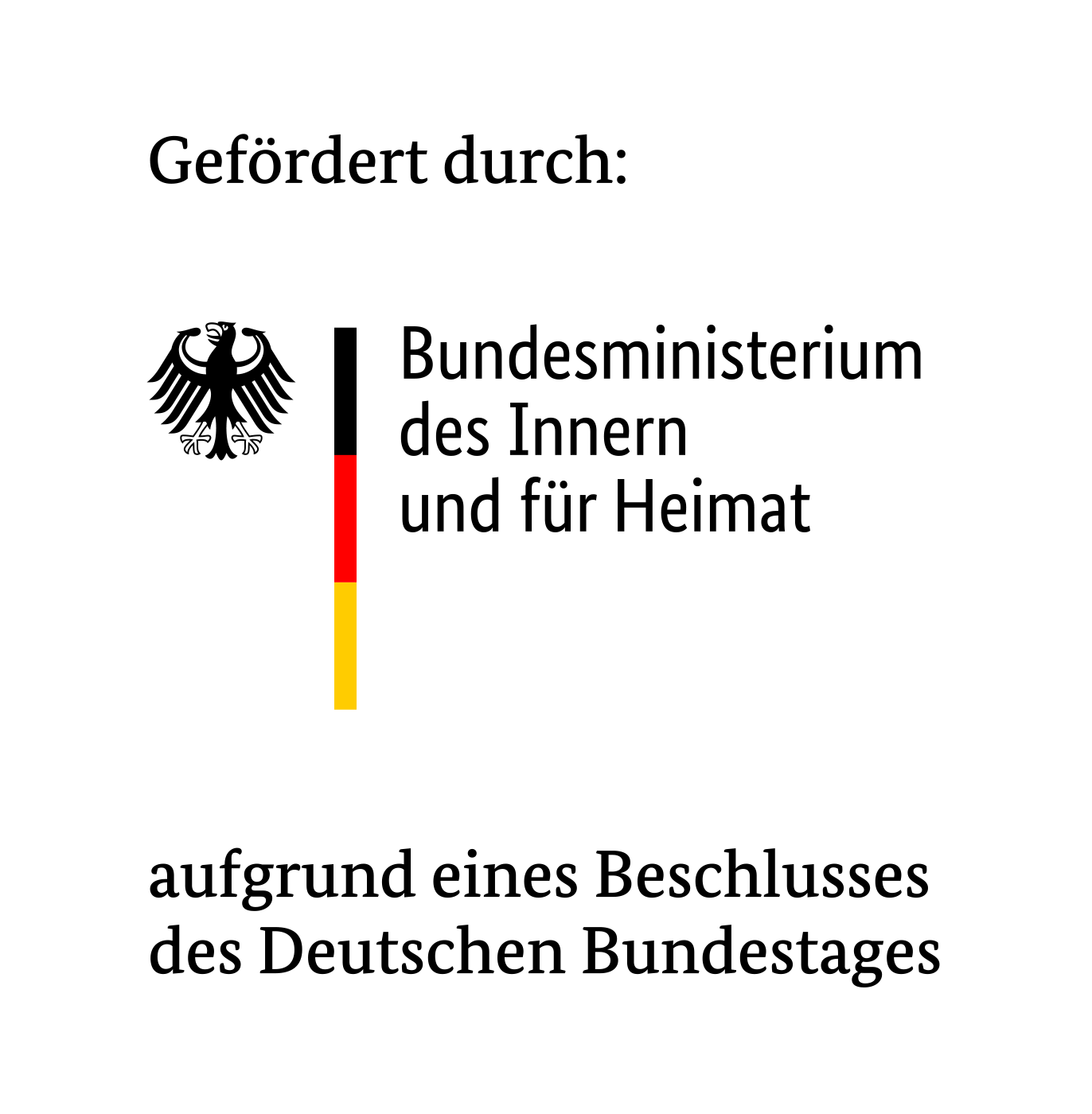
SAJTÓKÖZLEMÉNYEK
- New secretariat in the Polish parliament supports national and ethnic minorities
- FUEN calls for the inclusion of the Ladin language at the 2026 Winter Olympic Games
- FUEN Urges UN Special Rapporteur to Advocate for a Coherent EU Minority Protection Framework
- FUEN wishes you a peaceful Christmas season, restful days and a bright, hopeful start to the new year!
- FUEN calls on the EU to act over systematic ethnic-based land confiscations in Slovakia
- Women of Minorities conference in Budapest calls for structural change to ensure equal political participation of minority women
- FUEN President Olivia Schubert at UN Forum on Minority Issues in Geneva
- "Laboratory of Peace": 28th Seminar of Slavic Minorities held in European Capital of Culture Gorica/Gorizia
- Equality in Political Participation and Representation: Third “Women of Minorities” Conference to Be Held in Budapest
- FUEN Working Group on Education discusses challenges and future of minority schooling in Europe














